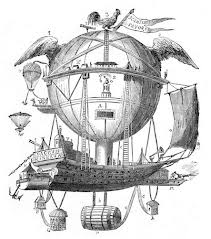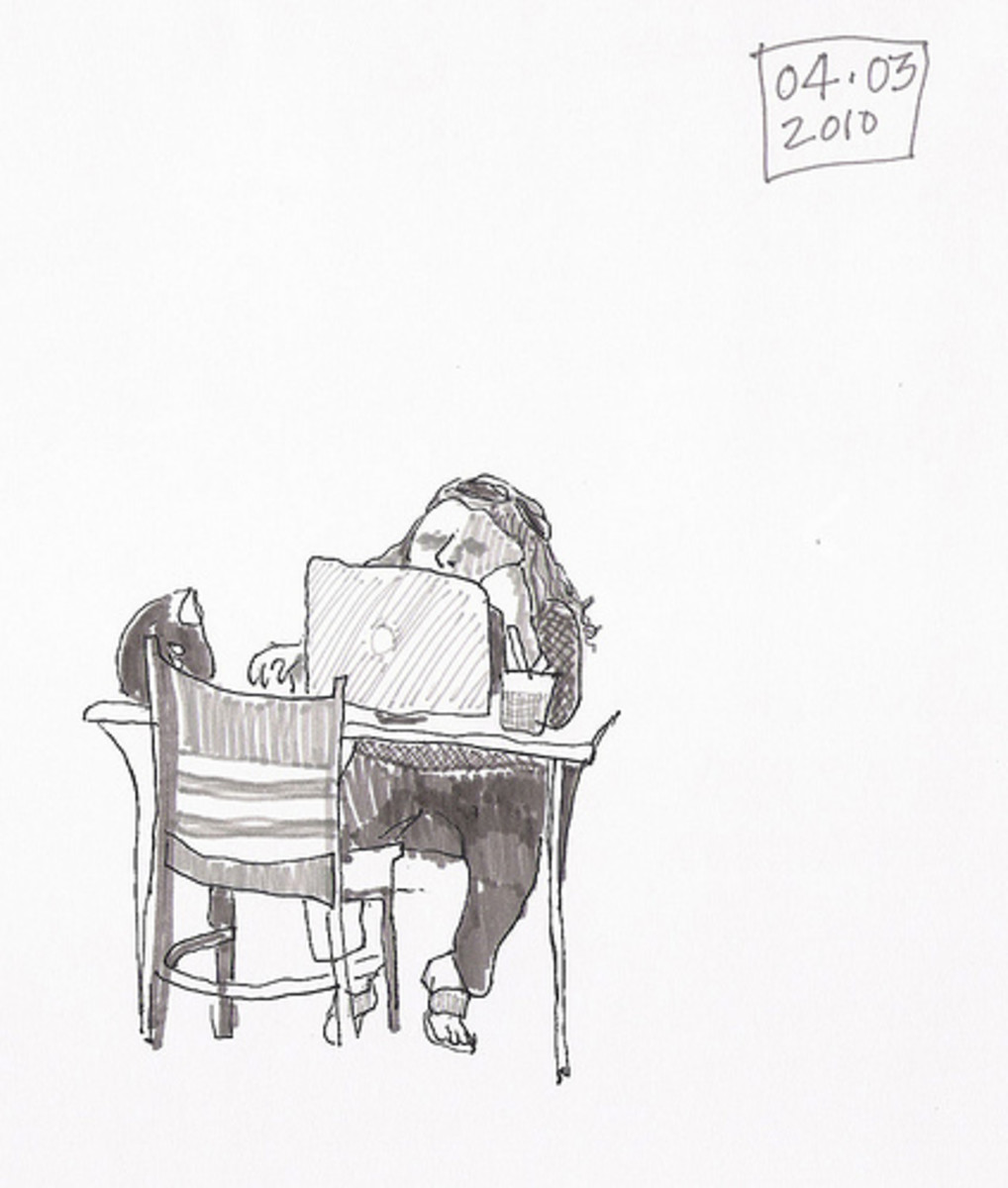How the Internet is changing our brains and damaging memory in the process.

In the early 18th century Education was visual, what we would now call multimedia but using other t technologies.
By the end of the 18th century Education was linear and print based.
Today we are moving back to a visual mode of education and self education, with video, audio and pictures supplementing text.
This trend, together with Internet based technologies has benefits and costs, as did the previous stage, print based learning, reading and Education.
We need to embrace the benefits of this new way of learning and thinking, using the Internet while keeping, and in extreme cases, relearning the older style of thinking, symbolised by book and pen.
Some symptoms
The Internet, and the World wide web in particular, have changed the world. But every tool, every medium, changes its users and the Internet is no exception, indeed it is a bigger changer than any previous invention, including printing.
People are growing up who never knew the pre Internet world, and cannot assess the gains and losses from the Digital revolution. Some disturbing trends resulting from the way the internet affects our brains are discussed and possible remedies proposed in an effort to find a way to keep the benefits of Internet style thinking and the benefits of the older style of thinking.
After some ten years of using the internet various people reported some side effects (though the effect on the brain could be seen after a matter of hours):
-
A problem reading printed books for more than a short period of time
-
A reduced attention span when talking to people, listening to a talk or trying to solve a problem
-
Inability to follow a long complex or nuanced argument
-
Memory problems such as a tendency to forget to send important emails till just after the computer has shut down.
-
An inability to write neatly using a pen and paper, and the resulting text rambling more and focussing less than the electronically typed version.
Other symptoms, not all related to the Internet, but not helped by internet use included
-
A loss of creativity in non computer related ideas.
-
Good, or at least plausible ideas that arrived at 3am or on public transport vanished after a short email check.
The internet has allowed us to find information more rapidly at the cost of a deep understanding of that information. This gives the appearance of Intelligence at the cost of what used to be called wisdom.
Lets look at a couple of these in more detail
Handwriting.
This has been a problem for me since schooldays, when I asked a teacher what his remark at the end of my work said only to be told, in an annoyed tone “it says you must improve your handwriting” Nevertheless my handwriting has decayed to almost medical practitioner standards and I can feel slight slips of the hand suggesting a decline, with lack of practice in the fine motor skills needed for handwriting.
Loss of creativity in non computer related fields
Working with a computer for eight hours a day, as many do nowadays, absorbs a great deal of mental and physical energy, since the brain takes a lot of the energy that the body produces: at least 20%. It is said that 70% of all body heat is lost through the head ( bald men must really hate winter) and there is a traditional joke about wrapping a wet towel round the head when tackling a difficult mental problem. Estimates of the number of hours a week needed for maximum productivity, currently 35-40 hours, are based on physical not mental labour: mental labour, especially the software field, should have a significantly lower limit. Probably around 30 hours maximum. Regardless, the effort needed leaves fewer resources for poetry, photography, or other creative pursuits. Sometimes it even takes the energy needed for physical pursuits. And artist's block becomes routine.
Vanishing ideas
“In Xanadu did Kubla Khan....” was the start of Samuel Taylor Coleridge's famous unfinished poem. Interrupted by a visitor Coleridge never finished the poem. There must be thousands of lesser disasters. Not all trivial and not all so frustrating: one great French writer pulled away from his mistress with the words “There goes another great novel”. At least he had more to compensate him than Coleridge did. But the average internet user has even less compensation. A spam email, a Facebook comment between two mutual friends discussing someone unknown to the reader, or an invitation to a game they do not want to play. Now what was I going to say before my email beeped....
Reduced attention span
If reading an article on the internet is like a sprint a book is like a marathon. Used to flicking from link to link one absorbs a lot like a sponge but a sponge on a heater that dries rapidly and leaves no trace. Ideas leave the screen, enter the reader's head and pass through it like neutrinos. Print feels so twentieth century. Why struggle through a long heavy book when everything is available on line. Finally sit down to read and find the monkey mind moving restlessly from book to window to daydreams. Old monkey can't sit still, like Old Man River he just keeps on moving. Unlike Old Man River he talks like he was vaccinated with a gramophone needle. Nonsense mostly. Now what will I have for lunch? Oh look, a cat. And the book closed itself. Now I don't even know the page.
An old friend just dropped by. Talking and my fingers itching to hit the keyboard. Push the machine away and focus on Friend. Old Monkey comes back and blocks my ears at crucial moments. What did they just say while Old Monkey was showing me a tree fit for climbing? Push the monkey away and focus. It gets harder. Must do something. What did they just say?
The Brain is plastic. No not polythene, I mean malleable, changed by experience. One study showed brain changes after just five hours surfing the internet. Surfing the internet is not a bad metaphor. You have to stay alert, keep moving, notice what is at hand. But always you are on the surface, never going deep. Lose balance and you are lost. Try to understand and the flood overwhelms you. Years ago my professor told me that as a young man he worked in industrial research and his group got a grant. The manager asked “What will you do?” so he said “library research to understand the problem” The manager asked “What will you do?” so he said “ I will investigate what mistakes other made so I do not repeat them” The manager asked “What will you do?” so he said ( cottoning on) “I will go to the workshops and have a trolley made to hold liquid nitrogen” and the manager said “Excellent, forget all the other nonsense”. With the Internet you tend to become your own manager of this type. The time taken to understand in depth it seems is not an investment but a waste.
Every tool or technology you use changes you. The Samurai became one with his sword. The labourer who swapped a shovel for a mechanical digger lost a lot of muscle. T.S Eliot found that moving from a pen to a typewriter changed his style from long subtle sentences to short lucid ones. He claimed the typewriter encouraged lucidity but not subtlety. First, as someone said, you use your tools, then they use you. We surf the Internet then it surfs us.
A partial plan for a cure
There is a time for fast and a time for slow. Today slow and deep is being eased out in favour of fast and shallow. Religious leaders and politicians like this for it makes us easier to control if we do not take time to think. Perhaps the simplest definition of a cure is to make time for slowness, time away from a screen that, like television hypnotises and hijacks the mind.
Take time to read, perhaps on a screen, a long and complex argument or a highly literary novel and digest it, twisting it on the mind's tongue extracting what is good and rejecting what is bad. Move from Internet to E-Reader if you must, though E- Readers are well below what I would want from them the only advantage they have being weight. This will help with attention span and memory. If you are reading something on the internet ignore links till the second or third reading. Otherwise just seeing a link distracts you just long enough to decide whether it is worth clicking and can break your concentration long enough for you to lose the train of an argument. If what you are reading merits it try mentally summarising it to a one liner summarising the argument. And not where you file it.
For handwriting buy the most expensive calligraphy pens you can afford and set aside time to use them every day. I say expensive because if you pay a lot you are more likely to use it. You need not try to become a calligrapher, but you will notice the pen forces you to write more neatly and this should transfer itself to writing with rollerballs and other pens that do not force the hand into the right movements.
For vanishing ideas try to get into the habit of writing them down before checking email. This is related to the memory problems caused by surfing the distraction machine known as the web. Every distraction makes it harder for what you are reading to go from short term memory to long term memory in the brain. And the web is full of distractions.
When talking to friends try not to hide behind a screen unless you have to ( or they do the same). Try to give them your undivided attention. Eye contact, concentration etc. If you are at a loss for what too do with your hands grab the expensive pen and paper and doodle. Explain you are recovering from cyber addiction and this is part of the therapy.
These are only suggestions to help you make your own plan. When you are surfing the net you are solving a puzzle, and thinking the way you are when solving a crossword puzzle. When reading a book you are going deeper and uncovering the layers and folds of what the author is saying.
The wrap
The computer is a tool. The internet and smart phones are related tools. Surfing the internet needs a different mode of thought from reading, whether a novel, an academic paper or a 500 page academic treatise. Each mode of thought has its rewards, benefits and costs. We have to learn to use both modes to achieve our potential.








